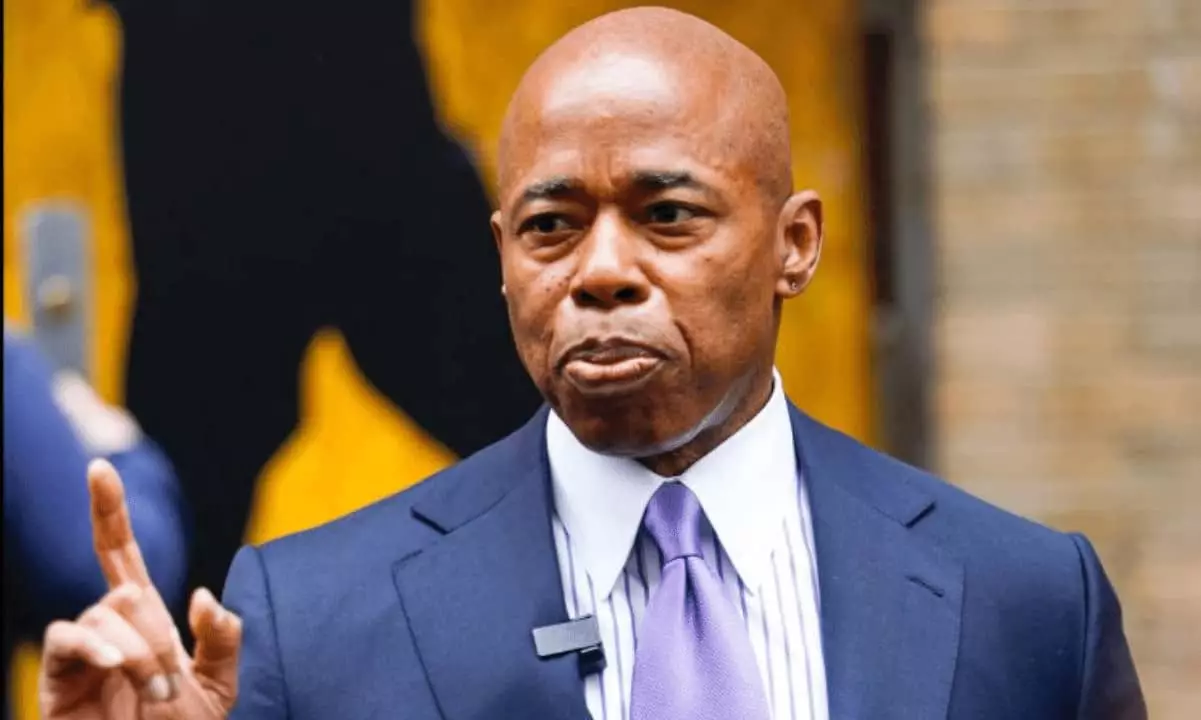The intricate dance of politics often takes unexpected turns, and the recent indictment of New York City Mayor Eric Adams is a stark reminder of the vulnerabilities inherent in public office. As a figure who rose from the ranks of a police captain to the storied role of mayor, Adams has faced scrutiny that goes beyond mere political rivalry. His journey, punctuated by a commitment to cryptocurrency and progressive policies, now finds itself overshadowed by allegations of corruption and questionable dealings among his administration’s ranks.
The foundations of trust that hold a city together are delicate, and when those in power become ensnared in corruption rumors, the entire community suffers. The indictment of Mayor Adams follows a series of unsettling revelations about his administration, including the resignation of high-profile officials like the police commissioner and chief advocate. Such upheaval signals a crumbling sense of stability within city governance. Investigations that involve financial misconduct only intensify public skepticism and can create divisions among community members who once rallied behind the mayor’s promises.
Adams’s high-profile commitment to cryptocurrency, which initially endeared him to many, has become a double-edged sword. The mayor’s decision to receive his first salary in Bitcoin underscored a hopeful vision for New York as a burgeoning hub for digital finance. The narrative has now shifted as distractions amidst potential legal battles detract from tangible progress. How can a leader rally a city to embrace innovation when trust in their integrity hangs in the balance?
Allegations of Corruption: A Looming Shadow
The events leading up to Adams’s indictment have been both alarming and convoluted. While specific charges remain sealed, the mere involvement of the FBI indicates more than just isolated accusations. The investigation began to take shape in November 2023 with the unexpected raids on key individuals closely tied to Adams, such as his chief campaign fundraiser. Such news creates a damaging domino effect, undermining the mayor’s narrative and authority.
Adding another layer of complexity to the unfolding story are the accusations against former officials from the New York City Fire Department, charged with accepting bribes amounting to over $190,000. It raises a crucial question: if corruption is endemic within some departments of city administration, how can citizens trust their elected leaders? The mayor’s office is meant to operate as a bastion of hope and accountability, yet allegations of bribery further tarnish an already battered reputation.
In light of these immense challenges, Adams has taken a defiant stance, asserting his innocence and vowing to fight back with vigor. His proclamation, “If I am charged, I am innocent, and I will fight this with every ounce of my strength and spirit,” showcases a fighting spirit that may resonate with supporters. However, words alone will not restore faith. The public may soon weigh the mayor’s resolution against the cold, hard evidence explored during investigations.
Yet, the broader implications of these allegations cannot be understated. Adams, as the second Black mayor in New York City’s long history, held implicit responsibilities to lead with integrity and transparency. With his advocacy for crypto and efforts to revitalize the local economy through technology, he has positioned himself as a forward-thinking leader. However, if corruption claims triumph over his vision, the ramifications could extend far beyond his personal narrative.
Crypto Promises vs. Reality
The juxtaposition of Adams’s commitment to cryptocurrency and the current corruption investigation lays bare the complexities of modern governance. Despite fervent advocacy for blockchain technology and an ambition to position New York as a leader in this domain, the mayor’s financial dealings have come under scrutiny. The initial oversight regarding his crypto holdings could suggest a disconnection between intention and execution.
In discussing the controversial BitLicense regulation, the mayor has argued that unnecessary restrictions hinder the industry’s growth. However, these very discussions risk being overshadowed by his external controversies. Adams’s statements urging the need for regulatory reform hold power, yet they may be rendered meaningless if tainted by allegations of misconduct within his administration.
As investigations unfold, New Yorkers must grapple with the duality of a leader who brought promises of innovation and hope against a backdrop of potential scandal. Mayor Adams’s struggle signifies a turning point not just for his administration, but for the city as a whole. The outcome of these events will not only dictate Adams’s political future but will also shape the landscape of city politics for years to come. The challenge now lies in whether public trust can be restored and innovative ideals can be realized amidst the growing clouds of cynicism gripping New York City.


Leave a Reply